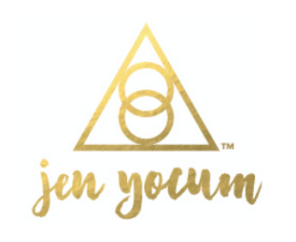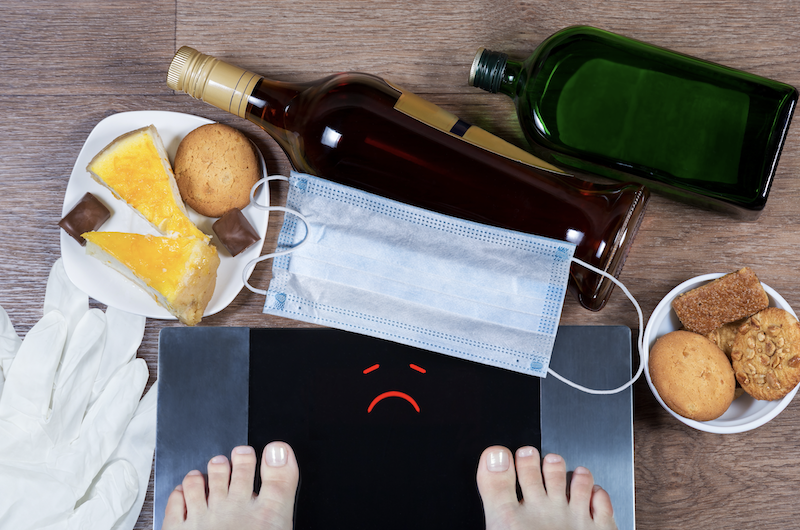In my acupuncture practice, many patients have lamented about weight gain during the pandemic. Nicknamed the “COVID [insert however much weight you gained],” most Americans have packed on the pounds due to less activity and stress eating over the last 15 months. While it is most important to focus on how you feel, rather than the numbers on a scale, most people I have spoken to are correlating their extra weight with feelings of sluggishness, exhaustion, lack of energy, and being less active than they used to be. All of us want to feel vibrant, energetic, and capable of going on a walk without losing our breath. Weight gained over the last year cannot be expected to come off quickly if it’s more than a couple pounds, so it requires a measured and consistent effort. Thankfully, Chinese Medicine has nutritional advice that has stood the test of time to help us feel our best and maintain a healthy weight.
Like modern Western medicine advises, Chinese Medicine also believes daily movement is important to your health. Make sure to move at least 30 minutes a day. Where Chinese Medicine begins to diverge from Western medicine is in the types of food that make up a healthy diet. Whereas Western nutritional theory might consider foods like smoothies, salads, and raw vegetables to be healthy choices, Chinese Medicine would suggest limiting these foods because they are uncooked and lead to a condition known as dampness. In fact, most foods in the Standard American Diet are dampening.
So what is dampness? It is one of many “patterns of disharmony,” which are the Chinese Medicine equivalent of diagnoses in Western Medicine. Symptoms of dampness include: extra weight, bloating, foggy thinking, feeling heavy or like you are walking through mud, dull aches and pain in the body, mucus or phlegm, edema/swelling, low energy, acne, joint inflammation, and yeast infections, just to name a few. Luckily for us, dampness is able to be addressed through diet and exercise.
Foods that cause dampness include wheat, dairy, sugar, and fried foods. These foods in moderation are fine, but when they take up too much of our diet, they begin to cause damage and set the path for dampness to take root in our bodies. For most people, especially if they are beginners to limiting foods from their diet, I suggest starting slow. Choose one of the categories listed, and restrict that food to once a week. For example, if you want to start with dairy, for one week, do not eat any dairy items- butter, milk, yogurt, ice cream, sour cream and anything else containing dairy, including processed foods. Note how you feel when you don’t eat that food. Continue to only eat that food once a week and then go to the next category, for example, wheat. Stick to only eating something containing wheat once that week. Over the course of the next couple weeks, repeat the process, eating items from each of the four dampening food categories no more than once a week, and then see how you feel after the month is up. Did certain foods make you feel bloated when you ate them? Did you notice your stomach looking flatter? Did you have more energy? Did you lose any weight? When you begin to explore your body’s reaction to food, you can refine your diet to one that is designed especially for you- one that helps you feel your best.
Chinese Medicine not only discusses what foods to limit, but also what foods to add into your diet to help boost your energy and reduce dampness. First and foremost, Chinese Medicine-based nutrition theory focuses on eating mostly lightly-cooked foods. Around 80% of your diet should be comprised of cooked food, and the rest can be raw. Think dishes like soups, stews, steamed, baked or grilled vegetables, seafood, and meat. Cooked whole grains like rice, quinoa, millet, or buckwheat also make for great choices. Additionally, using spices and herbs to flavor your food imbue it with medicinal properties and make it tasty! Particular foods, spices, herbs and teas that help to relieve dampness include, but are not limited to: corn, barley, basmati rice, alfalfa sprouts, button mushrooms, capers, pumpkin, radishes, turnips, papaya, lemons, aduki beans (also called adzuki beans), lentils, eel, tuna, lobster, garlic, horseradish, aniseed, marjoram, white pepper, parsley, nettle, green tea, jasmine tea, and raspberry leaf tea.
Here’s a great summer recipe I created that I’ve previously posted, with multiple dampness-busting ingredients for you to try:
I hope this inspires you to make some healthy changes to your diet. Above all else, be gentle with yourself if you’ve gained weight during this pandemic. As so many have said, these are truly “unprecedented times.” We’ve never been through this before, nor through anything that restricts us socially for such a long period. It’s human for us to try to self-soothe with food or other substances. Yet we also need to come out of this time with a healthy dose of optimism for better choices ahead that will support our bodies, minds, and spirits in the long run. So start moving your body if you haven’t been, experiment with your diet by limiting dampening foods, and pay attention to what makes you feel good. Support your progress with regular visits to health professionals such as your primary care doctor, acupuncturist, mental health professional, nutritionist, or others who can guide you along the way and give you any necessary medical advice. As Lao Tzu, a famous 6th century BCE Chinese philosopher and author of the Tao Te Ching said, “the journey of a thousand miles begins with a single step.” Take small, simple steps, and you’ll get to your wellness goals of losing that COVID weight and feeling more energetic and inspired before you know it!
Disclaimer: Before attempting any weight loss program, consult a healthcare professional who is trained to guide you through this process and assess whether or not you are able to safely lose weight.
Note: This article was originally published in a local magazine for their July 2021 issue. For citation references, please contact Dr. Yocum at https://jenyocum.com/contact/


Recent Comments